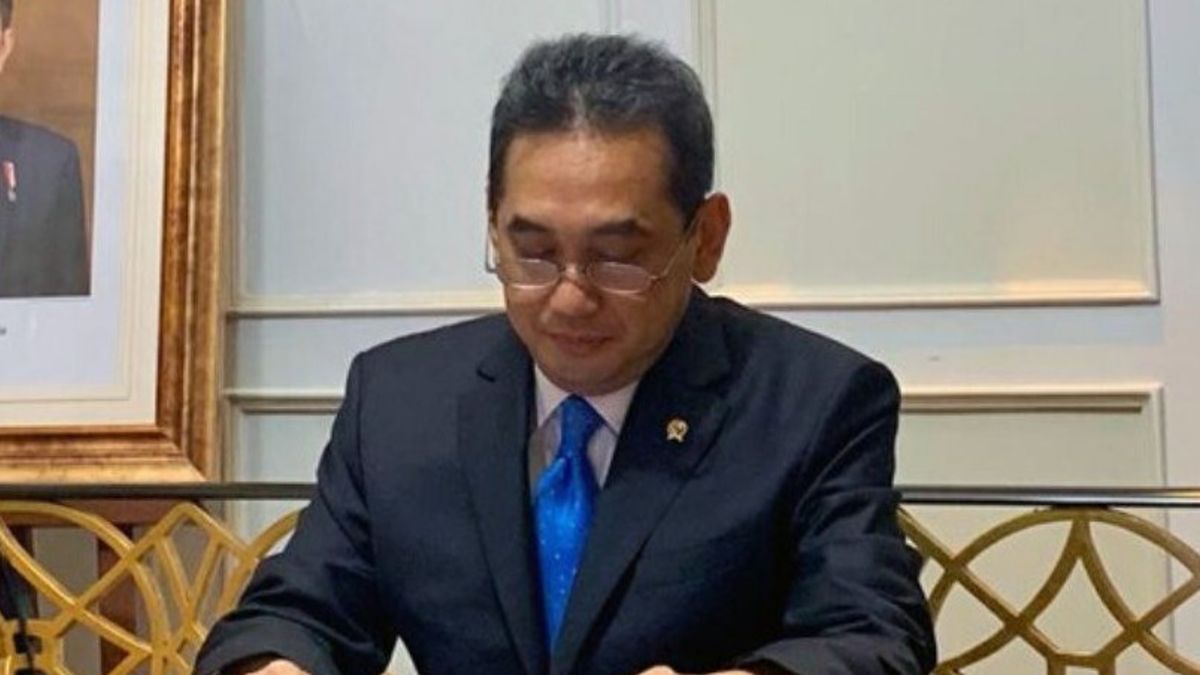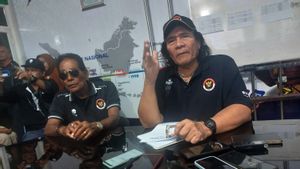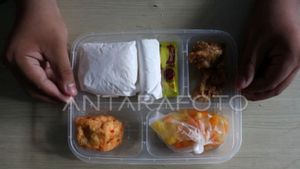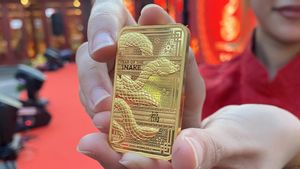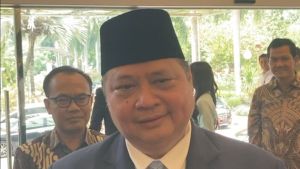JAKARTA - Indonesian Minister of Trade Agus Suparmanto and Minister of Trade, Industry and Energy (MOTIE) South Korea Sung Yun-mo officially signed a comprehensive economic agreement between Indonesia-Korea or Indonesia-South Korea Comprehensive Economic Partnership (IK CEPA) in Seoul, South Korea .
Agus said, the signing of the IK-CEPA agreement today is an important milestone in bilateral economic relations between Indonesia and South Korea, considering that South Korea is increasingly interested in making Indonesia a new production base in ASEAN.
"I believe IK-CEPA will bring Indonesia's economy to be stronger, more competitive, open, and more attractive to South Korean investors by making Indonesia a production hub to enter regional and world markets," he said, in a virtual press conference after the signing of IK. -CEPA, Friday, December 18th.
Agus said that the signing of the IK-CEPA shows the commitment of the two countries to strengthen economic relations in the midst of a challenging global economic situation in the last few years before finally being faced with the COVID-19 situation. In this context, it is hoped that IK-CEPA can assist the economic recovery of the two countries more quickly.
IK-CEPA covers trade in goods which includes elements of tariff reduction / elimination, provisions on the origin of goods, customs procedures, trade facilitation, and trade remedies; service trade; investation; economic cooperation; as well as institutional arrangements.
Agus said, in trade in goods, South Korea will eliminate up to 95.54 percent of its tariff posts, while Indonesia will eliminate 92.06 percent of its tariff posts.
Several Indonesian products whose tariffs South Korea will eliminate are lubricants, stearic acid, t-shirts, blockboards, dried fruits, and seaweed. Meanwhile, Indonesia will eliminate tariffs for several products, such as gear boxes of vehicles; ball bearings; and paving, hearth or wall tiles, unglazed.
Agus explained that through this agreement, Indonesia would also give preference to tariffs to facilitate South Korean investment in Indonesia for 0.96 percent of the tariff posts worth 254.69 million dollars or 2.96 percent of Indonesia's total imports from South Korea.
Furthermore, Agus said, if viewed from the value of imports, South Korea would eliminate tariffs for 97.3 percent of its imports from Indonesia, while Indonesia would eliminate tariffs for 94 percent of its imports from South Korea.
Meanwhile, in service trade, Indonesia and Korea are committed to opening more than 100 sub-sectors; increasing the integration of several service sectors in the future, including in the construction sector, postal and courier services, franchising, to computer-related services; as well as facilitating the movement of intra-corporate transferees (ICTs), business visitors (BVs), and independent professionals (IPs).
It can be said that IK-CEPA opens a new chapter of partnership between the two countries through increased trade in goods and services, investment, and capacity building cooperation to jointly reap the benefits of the global economy which is expected to enter the recovery stage in 2021.
"The broad coverage of the IK-CEPA agreement shows that the two countries have a shared determination to elevate this economic relationship to a higher level. This will certainly contribute to the modernization process of the Indonesian economy, considering that South Korea has its own advantages in the field of technology," he explained. .
In 2019, South Korea was the eighth export destination country and the sixth source of imports for Indonesia. The total trade between Indonesia and South Korea in 2019 reached US $ 15.65 billion, with Indonesian exports to South Korea amounting to US $ 7.23 billion and imports from South Korea amounting to US $ 8.42 billion. The trade trend between the two countries in the 2015–2019 period was recorded to have grown positively by 2.5 percent.
Meanwhile, the value of Indonesia's non-oil and gas exports to South Korea for the January-November 2020 period was recorded at US $ 5.03 billion. Meanwhile, in November 2020 the value of Indonesia's non-oil and gas exports to South Korea was recorded at US $ 495.4 million. This value is an increase of 7.12 percent compared to October 2020 which was recorded at 462.5 million US dollars.
"Indonesia's main export products to South Korea include coal, briquettes, stainless steel products, plywood, natural rubber, and pulp. Meanwhile, Indonesia's imports from South Korea include electronic circuits, synthetic rubber, and processed steel products. , and clothing materials, "said Agus.
In 2019, South Korea was ranked seventh as a source country for foreign investment in Indonesia, with total investment reaching US $ 1 billion. From 2015 to 2019, South Korea's total investment in Indonesia reached US $ 6.9 billion and spread over 12,992 projects.
Since 2012For your information, in 2012, Indonesia and South Korea agreed to start the IK-CEPA negotiations. After negotiating for seven rounds from 2012 to 2014, negotiations were halted due to a change of government. In 2018, the two Heads of State agreed to reactivate the IK-CEPA negotiations and this was followed up by the Trade Ministers of the two countries by launching the reactivation of the IK-CEPA negotiations on 19 February 2019.
The two sides then held the 8th negotiations in Seoul, April-May 2019; 9th in Jeju, August 2019; and successfully completed negotiations at the 10th round of negotiations in Bali, 8-10 October 2019.
The Minister of Trade of both parties then issued a Joint Announcement on Substantial Conclusion of IK-CEPA Negotiations in Banten, on the sidelines of the Trade Expo Indonesia, on 16 October 2019; and the Joint Declaration on the Conclusion of Negotiation for IK-CEPA, on the sidelines of the 30th ASEAN-Korea Commemorative Summit in Busan on 25 November 2019.
This signing adds to the long list of achievements of the Ministry of Trade this year in the field of international trade cooperation, from the start of the implementation of the Indonesia-Australia CEPA; ASEAN – Hong Kong, China Free Trade Agreement (AHKFTA); and ASEAN-Hong Kong, China Investment Agreement (AHKIA).
Then the signing of the Regional Comprehensive Economic Partnership (RCEP) Agreement; then stipulated by Commission VI of the Indonesian Parliament so that the Indonesia – Mozambique PTA and the ASEAN – Japan EPA Protocol to Amend be ratified by a Presidential Regulation; then the 7th Trade Policy Review at the World Trade Organization (WTO); and now the signing of the IK-CEPA.
The English, Chinese, Japanese, Arabic, and French versions are automatically generated by the AI. So there may still be inaccuracies in translating, please always see Indonesian as our main language. (system supported by DigitalSiber.id)
